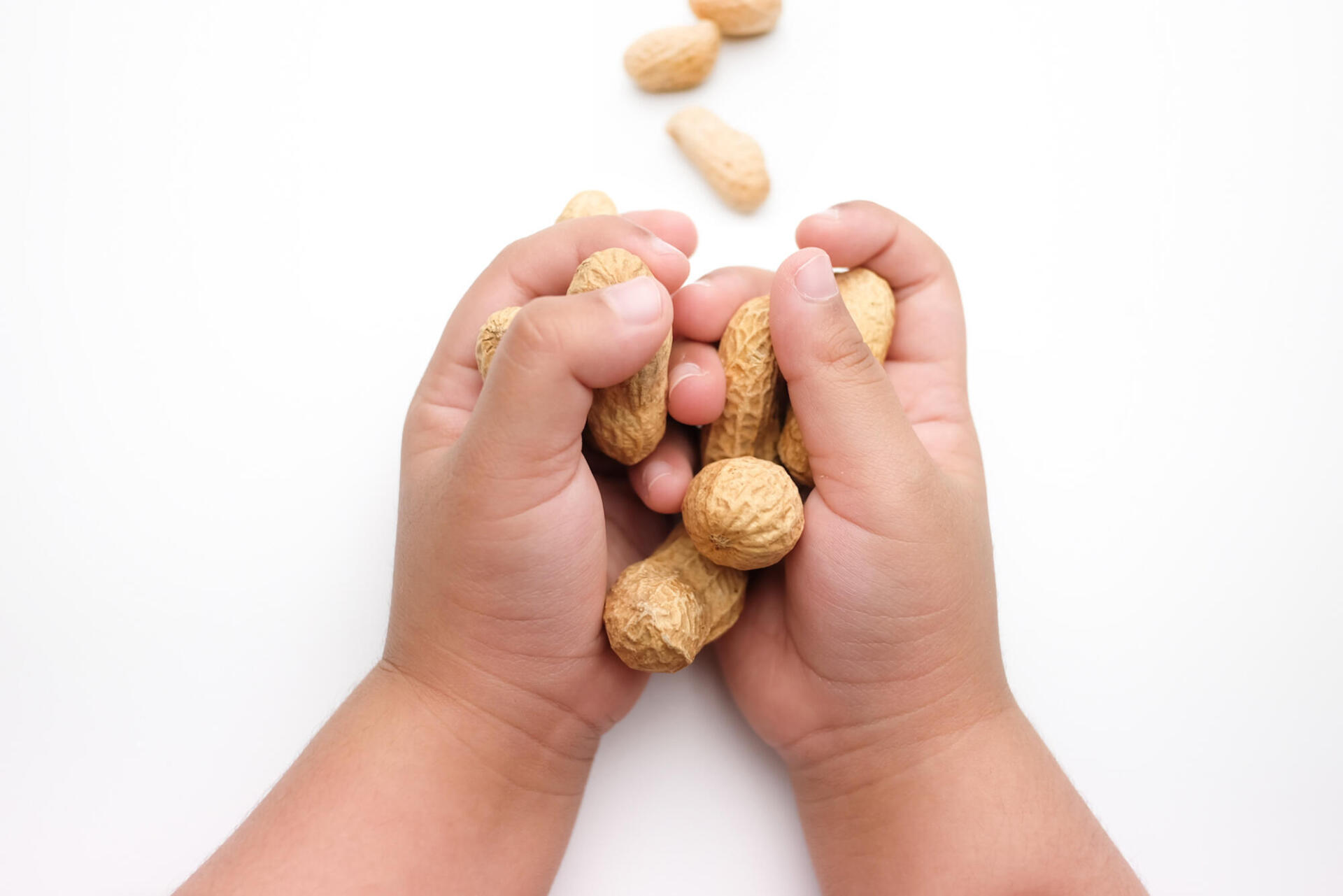
According to the U.S. National Library of Medicine, peanut allergy is the leading cause of life-threatening and fatal food allergic reactions in the United States. The prevalence of peanut allergy in the U.S. has increased over the last decade, with about 1% of the population affected. While allergies to cow's milk and hen's egg often subside as children age, only 20% of children outgrow a peanut allergy, making it a lifelong disease for most patients.
The current standard of managing a peanut allergy is complete dietary avoidance and educating the patient and his/her family on how to recognize and quickly respond to an acute allergic reaction. The burden of avoidance and a constant fear of accidental exposure to the allergen can negatively impact the patient's quality of life. An alternative solution to treating a peanut allergy is peanut oral immunotherapy (OIT), otherwise known as peanut desensitization. Allergy/Immunology Associates now offers peanut OIT treatment as an effective approach to reducing the severity of a peanut allergy. Contact our office to schedule a consultation on peanut oral immunotherapy with one of our allergy specialists.
What is peanut oral immunotherapy?
Oral immunotherapy (OIT) is a technique that involves feeding an allergic individual increasing quantities of an allergen orally until a maintenance dose is reached, which the patient then consumes daily. The goal of OIT is to raise the threshold that triggers an allergic reaction and train the patient's immune system so that they will no longer experience a severe reaction to the allergen, including anaphylaxis, if they are accidentally exposed.
In the case of a peanut allergy, the patient starts by orally ingesting very small amounts of peanut protein, which is gradually increased over a period of months until a daily maintenance dose is reached. On January 31, 2020, the U.S. Food and Drug Administration officially approved PALFORZIA™ [Peanut (Arachis hypogaea) Allergen Powder-dnfp] as a standardized OIT product for peanut allergy for patients 4 to 17 years of age.
What is peanut desensitization?
Peanut desensitization occurs when the patient's allergic symptoms improve and he experiences allergic reactions less frequently and with reduced severity. Studies have shown that approximately 60-80% of peanut OIT patients were able to safely consume greatly increased doses of peanuts after their course of treatment when compared to placebo patients.
What can you expect from peanut OIT at Allergy/Immunology Associates?
Peanut OIT is conduced under close medical supervision by our allergists during office visits and progresses to self-administration of the allergen at home once a maintenance dose has been reached. Patients will come in for bi-weekly office visits during dose increases to safely assess their tolerability. Patients will need to practice self-monitoring after dosing at home and avoid raising their body temperature for 2 to 4 hours after dosing.
It's important to note, however, that peanut OIT does not cure a peanut allergy and is not expected to eventually allow a patient to ingest peanuts without limitation. Individuals who receive peanut OIT will still need to carry epinephrine with them at all times and pay close attention to food labels. This process occurs over several months to years and possibly indefinitely. Ongoing exposure to a limited quantity of peanut protein each day is required to experience the long-term benefits of this therapy.
What are the risks and side effects associated with OIT?
The most common reported side effect of peanut OIT are oral itching and swelling, abdominal pain and cramping, nausea, vomiting, diarrhea, urticaria (hives), rhinitis, wheezing, and in severe cases, anaphylaxis. A small number of patients have developed an allergic disease called eosinophiliac esophagitis (EoE), which causes difficulty swallowing, vomiting, and abdominal pain, although it's not always clear that EoE is caused by OIT. EoE typically resolves when therapy is discontinued.
One way to mitigate the risks of peanut OIT is to combine it with a probiotic bacterial adjuvant that promotes tolerance to the allergen and/or an immunotherapy drug called omalizumab (generic for Xolair*). Omalizumab is a biologic drug therapy injected under the skin that is used to treat allergic asthma (AA) and chronic idiopathic urticaria (CIU) (chronic hives). In response to an allergen, such as peanuts, the body makes a substance called IgE (immunoglobulin E) that causes inflammation in the airways and/or hives associated with AA and CIU. Omalizumab prevents IgE from triggering a histamine-induced allergic reaction. A recent study suggests that omalizumab may allow for more rapid peanut desensitization with fewer side effects.
* The branch of Allergy/Immunology Associates that handles infusion therapies to treat various immunologic and allergic conditions is Ohio Infusion Services. Click here to learn more about our Xolair injection therapy.
